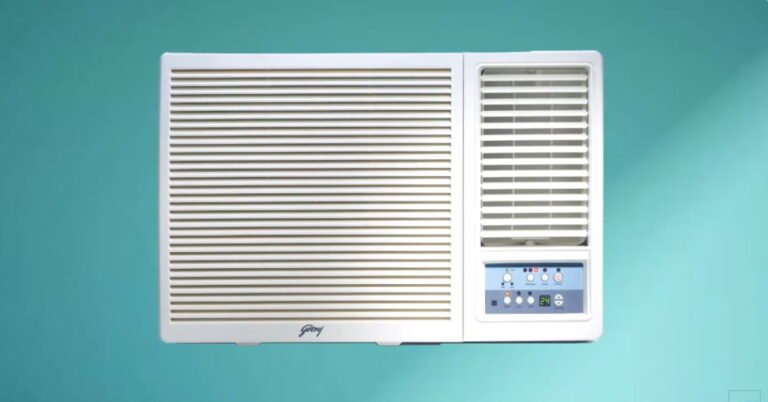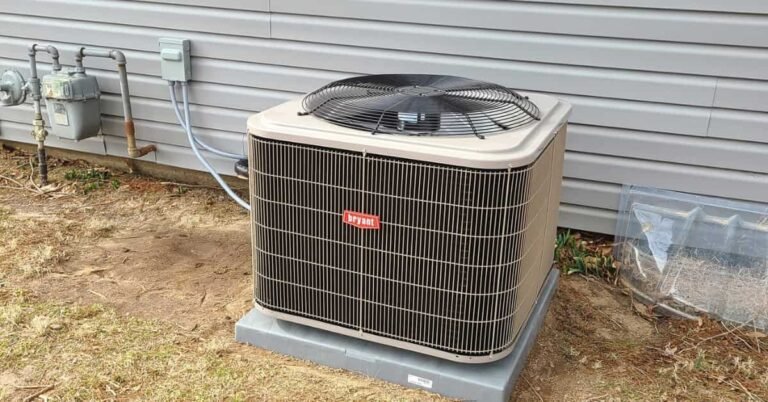What To Do If Your Window Air Conditioner Smells?
Window air conditioners can sometimes emit unpleasant odors, causing discomfort. Identifying the source of these smells is essential to address the issue effectively.
Proper maintenance and cleaning are fundamental in eliminating these unwanted scents and ensuring a pleasant indoor environment.
By understanding the reasons behind the odors and following appropriate steps to mitigate them, you can enjoy a fresh and inviting atmosphere in your living or working space.
If Your Window Air Conditioner Smells
A foul odor from your window air conditioner can make your living space uncomfortable. It’s important to identify and address the cause quickly. Here are the steps to diagnose and resolve the smell, ensuring your air conditioner operates cleanly and efficiently.

Identifying the Type of Smell
Identifying the type of smell coming from your air conditioner is the first step in addressing the issue. Different smells can indicate different problems, such as mold, electrical issues, or refrigerant leaks.
By pinpointing the specific odor, you can apply the appropriate solution and restore a fresh indoor environment.
1. Musty or Moldy Smell
A musty or moldy odor usually signals mold or mildew growth within the unit. These fungi thrive in damp, dark environments, making air conditioners an ideal breeding ground. The smell can be unpleasant and potentially harmful to your health. Identifying and eliminating mold is essential for maintaining indoor air quality.
2. Burning Smell
A burning smell coming from your air conditioner can be alarming. This odor usually signals an electrical problem or overheating component. Ignoring this smell can lead to serious damage or even fire hazards. Identifying the source of the burning smell is crucial for the safety and longevity of your air conditioner.
3. Chemical or Refrigerant Smell
A chemical smell often indicates a refrigerant leak. Refrigerant is vital for cooling your air, but it can be harmful if leaked. The smell can resemble chemicals or paint thinner. Addressing refrigerant leaks promptly is essential to avoid health risks and ensure your air conditioner operates efficiently.
4. Rotten or Sewage Smell
A rotten or sewage smell is particularly unpleasant and can indicate the presence of dead animals or pests within the unit. This odor can also result from a clogged drain or mold. Identifying the source of this smell quickly is crucial to prevent further contamination and restore a fresh indoor environment.
Immediate Actions to Take
When you notice an unusual smell coming from your air conditioner, taking immediate action is crucial. Quick steps can help mitigate potential damage and make it easier to identify the source of the odor. Turning off the unit, ventilating the area, and performing a visual inspection are the first actions to take.
1. Turn Off and Unplug the Unit
As soon as you notice an unusual smell, turn off and unplug the air conditioner. This step ensures safety and prevents any potential damage to the unit. Turning off the power also allows you to inspect the unit safely without the risk of electric shock.
2. Ventilate the Area
Open windows and doors to ventilate the area. Proper ventilation helps dissipate the smell and brings fresh air into the room. This step is essential, especially if the odor is strong or potentially harmful. Fresh air circulation can also help identify the source of the smell more clearly.
3. Inspect for Visible Issues
Perform a quick visual inspection of the air conditioner. Look for any obvious signs of damage, such as burnt components, mold growth, or leaks. Identifying visible issues can help you determine the next steps for addressing the smell. This initial inspection can provide clues about the cause of the odor.
Dealing With Specific Smells
Different smells from your air conditioner indicate different problems. Addressing each specific odor requires targeted actions. Whether it’s a musty, burning, chemical, or rotten smell, understanding how to tackle each issue effectively can eliminate the odor and restore a fresh indoor environment.
1. Musty or Moldy Smell
To eliminate a musty or moldy smell, clean all areas where mold may be present. Use a mold inhibitor spray to prevent future growth. Ensure the unit is dry and well-ventilated to discourage mold development. Regular cleaning and maintenance help keep mold and mildew at bay.
2. Burning Smell
If you detect a burning smell, inspect the electrical components of the air conditioner. Look for any signs of overheating or burnt wires. If you find any, it is best to call a professional to handle the repairs. Do not attempt to fix electrical issues yourself, as this can be dangerous.
3. Chemical or Refrigerant Smell
A chemical smell often means there is a refrigerant leak. Turn off the unit and contact an HVAC technician immediately. Do not try to handle refrigerants yourself, as they can be hazardous. A professional will safely repair the leak and recharge the refrigerant to ensure efficient cooling.
4. Rotten or Sewage Smell
A rotten or sewage smell may indicate dead animals or pests inside the unit. Carefully inspect and clean the interior to remove any contaminants. Ensure all openings are sealed to prevent pests from entering. Regular checks can help avoid this unpleasant issue.

Cleaning And Maintenance Window Air Conditioner
Regular cleaning and maintenance are essential for keeping your air conditioner odor-free and functioning efficiently. By routinely cleaning filters, coils, and the drainage system, you can prevent the buildup of mold, bacteria, and other contaminants that cause unpleasant smells. Proper maintenance also ensures optimal performance.
Cleaning the Filters
Dirty filters can contribute to unpleasant smells. Remove the filters and clean them thoroughly with water and mild soap. Make sure they are fully dry before putting them back. Regular filter cleaning helps maintain efficient airflow and reduces the buildup of mold and bacteria that cause odors.
Cleaning the Coils
Dirty coils can also cause smells. Access the evaporator and condenser coils and clean them using a soft brush or a vacuum. Use a recommended coil cleaner to remove any stubborn dirt or debris. Keeping the clean coils ensures efficient cooling and prevents mold growth.
Checking and Cleaning the Drainage System
A clogged drainage system can cause musty or sewage smells. Inspect the drain pan and drain line for blockages. Clean them thoroughly to ensure proper drainage. A well-maintained drainage system prevents water buildup, which can lead to mold and mildew growth.
Preventive Measures
Taking preventive measures can help ensure your air conditioner remains odor-free and operates efficiently. Regular maintenance, proper installation, and the use of air purifiers and deodorizers can prevent the development of unpleasant smells. These proactive steps help maintain a fresh and comfortable indoor environment.
Regular Maintenance Schedule
Regular maintenance is key to preventing odors from your air conditioner. Create a schedule for cleaning filters, coils, and the drainage system. Consistent upkeep ensures your unit runs efficiently and remains odor-free. Routine maintenance can also help identify potential issues before they become serious problems.
Using Air Purifiers and Deodorizers
Air purifiers can help keep the air fresh and reduce odors from the air conditioner. Choose deodorizers that are safe to use with your unit. These products can help maintain a pleasant indoor environment. However, always address the root cause of the smell rather than masking it with deodorizers.
Proper Installation and Sealing
Ensure your air conditioner is properly installed and sealed. Gaps and improper sealing can allow external contaminants to enter the unit, causing odors. Proper installation and sealing help keep your unit clean and efficient. Regularly check the seals and repair any gaps to prevent smells.
Conclusion
Addressing odors from your window air conditioner promptly is crucial for maintaining a comfortable home. Understanding the source of the smell and applying the right solutions can resolve the issue effectively. Regular maintenance and proper care ensure your unit runs efficiently and remains odor-free. If you encounter persistent smells, seeking professional help is always a good option.






